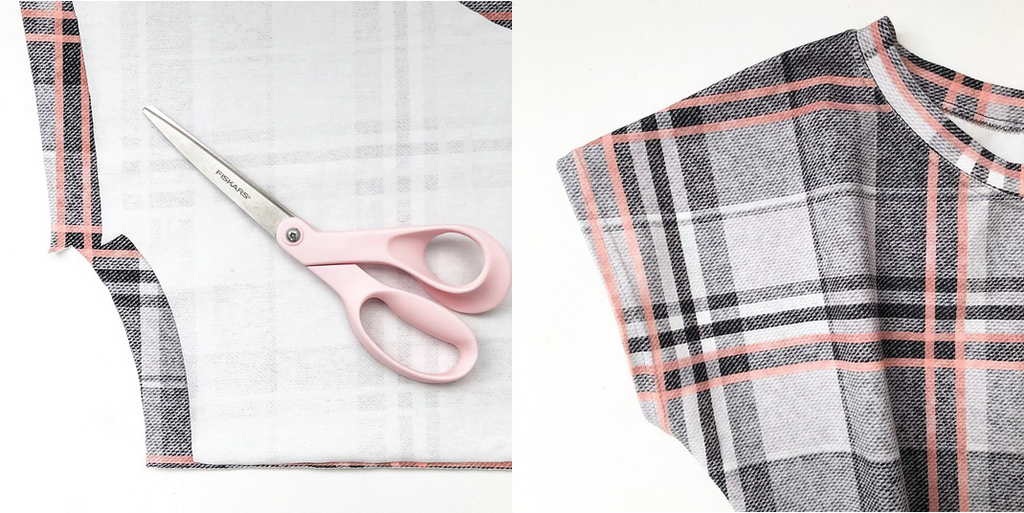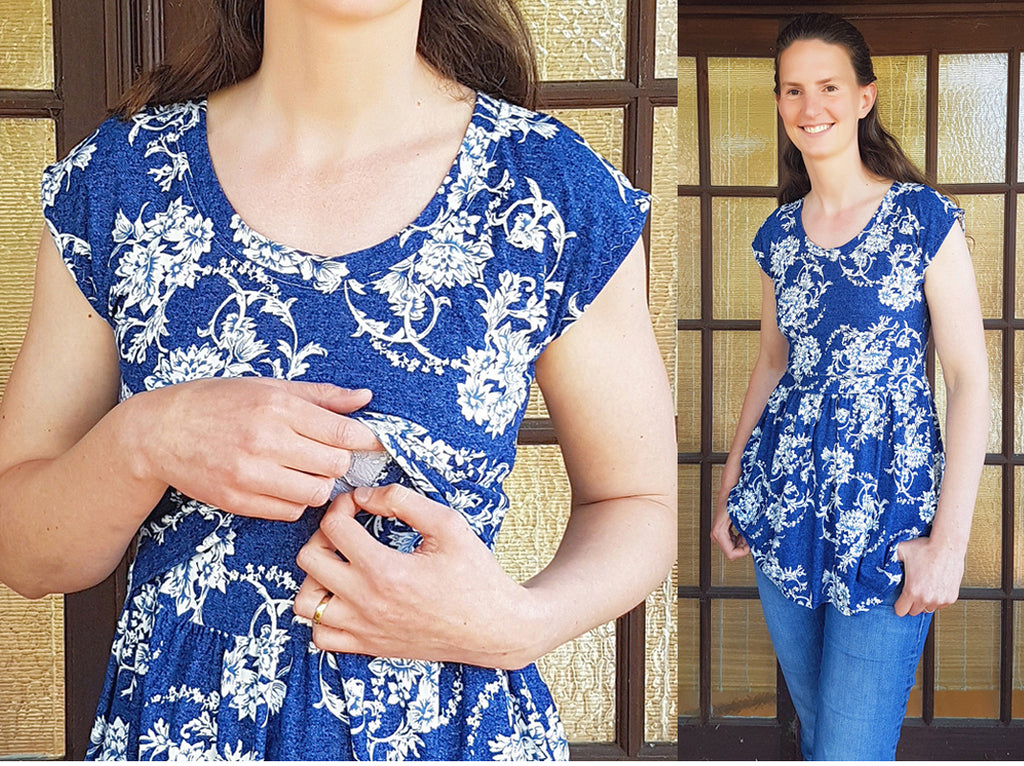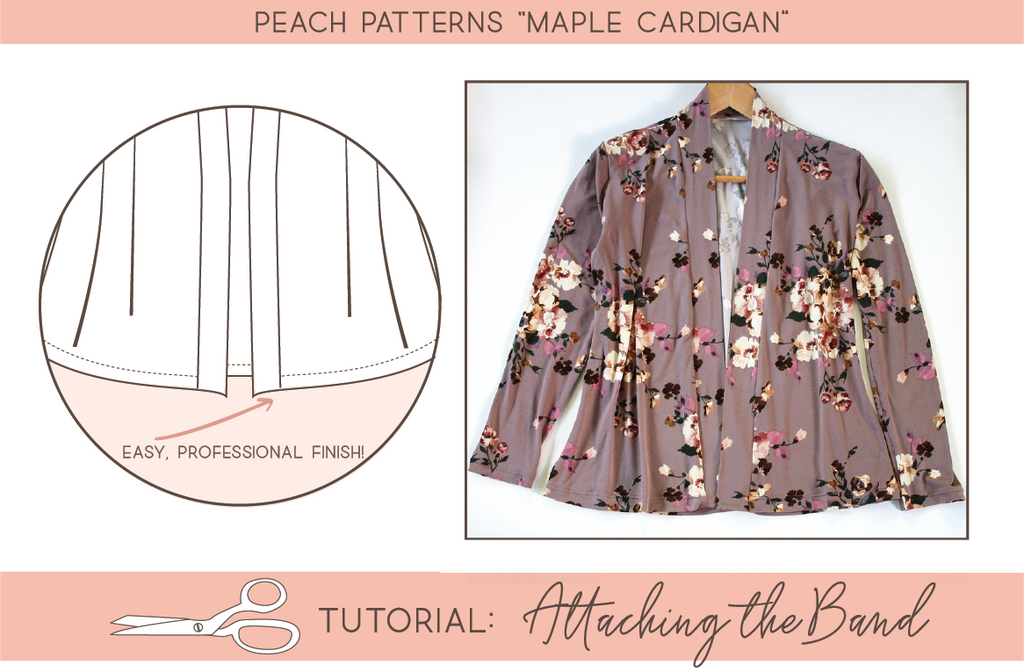Do you love the Peach Patterns Leilani Romper for Girls and want to make it a little easier to get on and off? Grab a cuppa and sit tight because this is for you! In this post we’ll run through two ways to add elastic to the shoulder straps/ties of the romper so that it can be pulled on and off easily without having to undo anything or mess around with the ties.
Two methods to choose from
Fixed Elastic Straps are for those who want a clean and simple look without ties. With this method small lengths of elastic are inserted into short straps which are then sewn into the front and back of the shoulders between the romper top and the ruffle overlay. Check out our previous blog post for lots of photos of our romper with fixed elastic straps in action!
OR:-
Elastic Ties are for those who love the look of the longer ties but also want the convenience that the elastic gives (the best of both worlds really!). After sewing some elastic into the lower part of the ties, you then go on to sew the ties in the same way that you would the regular shoulder ties. The elastic in the ties allows them to stay tied up whilst being pulled on and off over the shoulders.
What you need to make elastic straps/ties
The supplies you will need are:
-
A fabric loop turner. You can buy one of these cheaply online or at your local fabric store.
-
A small amount of narrow elastic. I have used 6mm (1/4”) wide elastic for my straps because this fits easily into the fabric tubes which you will create to make your straps or ties. A soft and pliable style of elastic like braided or knitted elastic is best for these techniques.
- To give added strength to the area where you will be attaching the elastic you may also want to fuse some lightweight interfacing to each of the four shoulder caps of your OVERLAY (or FACINGS for the basic romper option). Small squares of approximately 2cms (3/4") will do the trick. Follow the directions to apply the interfacing to the wrong side of the fabric.
-
A safety pin which will help you guide your straps/ties into place for sewing.

Which steps are replaced in the sewing instructions?
The straps/ties are inserted after Step 6 in the "Leilani Romper for Girls Sewing Instructions" when the TOP and OVERLAY (or in the case of the Basic Romper Option, the TOP and FACINGS) have been sewn together.
For both the methods below I sew the TOP and OVERLAY or FACINGS together around the neckline and armholes but leave the shoulder caps open as specified in the pattern instructions. Do not trim the neckline seam until after the straps/ties have been sewn into place.
First Method: How to Make Fixed Elastic Straps
1. Cut two lengths of elastic according to the suggested amount for your size in the "Elastic Cutting Guide" below.
2. Cut two rectangles of fabric which are each the same width as the SHOULDER TIE pattern piece and twice the length of your elastic pieces (because you will need to gather each tube up to a half of its size when the elastic is inserted).
3. Make your fabric tubes according to the “Loop Turner” method described in Step 7 of the "Leilani Romper for Girls Sewing Instructions". Turn them right side out and press.
4. Insert a piece of elastic into each fabric tube until the raw edges meet at one end. Sew back and forth across the width of the fabric/elastic (within the 1cm or 3/8” seam allowance) to secure the raw edges together.
5. Gather the excess fabric along the length of the elastic by pushing it towards the sewn end until the raw edges meet at the other end. Sew back and forth across the width of the fabric/elastic (again within the 1cm or 3/8” seam allowance) to secure the raw edges together. The photo below shows your finished straps, ready to be sewn into the romper.

6. Take your romper (which is turned inside out) and insert one end of a strap into one of the gaps in the shoulder caps (attach a safety pin to one end and use it to guide the strap into place if you need help inserting it). Match the raw edges of the strap with the raw edges of the shoulder cap and pin in place. Sew the gap closed (forwards and backwards).

7. Take the loose end of the strap and pass it across the side seam of the romper underneath the OVERLAY or FACINGS and to the opposite shoulder cap being careful not to twist the strap. Insert and sew it into the gap as per the instructions above.

8. Repeat Steps 6 & 7 with the remaining shoulder strap on the other side of the romper.
9. Trim the neckline and armhole seams, turn the romper right side out and pull the straps up into place. Press around the neckline and armholes and topstitch as per the "Leilani Romper for Girls Sewing Instructions".
Second Method: How to Make Elastic Ties
1. Cut four lengths of elastic according to the suggested amount for your size in the "Elastic Cutting Guide" below.
2. Cut four rectangles of fabric using the SHOULDER TIE pattern piece from your Leilani Romper pattern. (Note the pattern piece is long enough to allow for the gathering in this method but you could add 5 cms or so to the length of the ties if you want them to be a similar length to the standard Leilani Romper shoulder ties.)
3. Make your fabric tubes according to the “Loop Turner” method described in Step 7 of the "Leilani Romper for Girls Sewing Instructions". Turn them right side out and press.
4. On your fabric tube, make a mark or place a pin at a point twice the length of your elastic piece from one end.

5. Insert a piece of elastic into the fabric tube until the raw edges meet at one end. Sew back and forth across the width of the fabric/elastic (within the 1cm or 3/8” seam allowance) to secure the raw edges together.

6. Gather the excess fabric (from the marked point only) along the length of the elastic by pushing it towards the sewn end until the marked point meets the end of your elastic which is inside the tube. Sew back and forth across the width of the fabric/elastic to secure the inside end of the elastic within the fabric tube. (You can add embellishments like the bead in the photo below before tying a knot in the other end.)

7. Repeat the process above to make the remaining three SHOULDER TIES.
8. Insert and sew the SHOULDER TIES into your romper following Step 8 of the "Leilani Romper for Girls Sewing Instructions".
Tie the shoulder ties as normal when wearing the romper and leave them tied up to pull the romper on and off.
PLEASE NOTE: The Elastic Cutting Guide Below contains suggested lengths only because of the different preferences for where you or your child will want the bodice of the romper to “sit” on the body. Longer elastic = lower bodice and shorter elastic = higher bodice.

And that's it! I hope you enjoy making your easy on/off romper :)
Thanks for visiting and don't forget to check out our previous blog post with more pics of our Leilani Romper with the fixed elastic straps. And if you make one we'd love you to drop into the Peach Patterns Sewing Group and share some pics with us or share them on Instagram and tag your photos with #peachpatterns #leilaniromper.
I’m grateful to our brilliant pattern testers Natalie @taliajane_designs and Tanya @sewvolution who enabled me to develop this tutorial by sharing their techniques and suggestions with me.



































